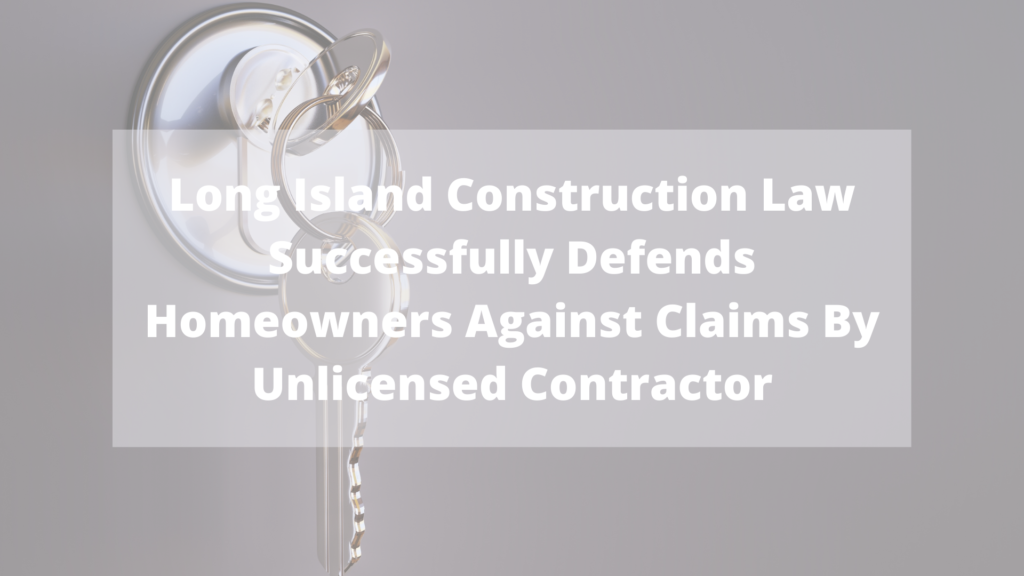
Despite much construction litigation, New York courts who govern Long Island construction law are agreed that an unlicensed home improvement contractor cannot recover against consumers. That has not, however, stopped unlicensed contractors from arguing exceptions to that rule. A recent court victory by John Caravella, Esq. confirms that courts remain unwilling to accept excuses from unlicensed contractors.
In Orefice v. Guma Development, homeowners sued an unlicensed contractor for defective construction. Notably, the local municipal code requires that any person doing business as a contractor be licensed by the municipality. A corporation does not require its own license if a licensed contractor is employed by the firm as a supervisor.
Continue reading “Long Island Construction Law Successfully Defends Homeowners Against Claims By Unlicensed Contractor”
![]()


